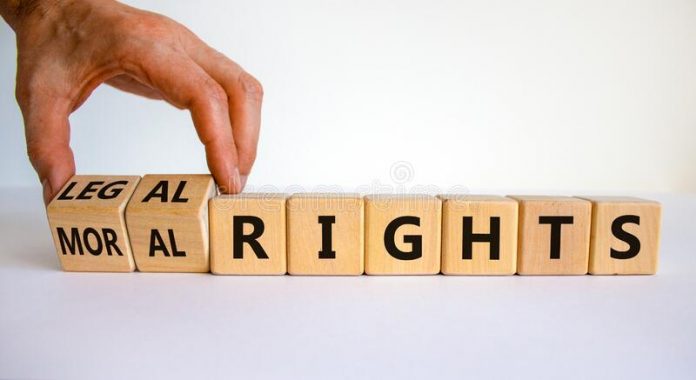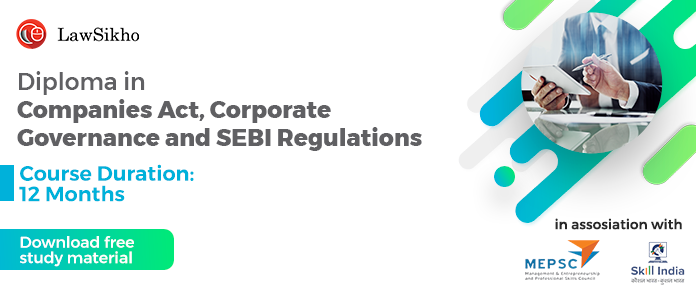This article is written by Esha Bahal pursuing a Diploma in US Intellectual Property Law and Paralegal Studies at Lawsikho. This article has been edited by Ojuswi (Associate, Lawsikho).
This article has been published by Sneha Mahawar.
Table of Contents
Introduction
Revenue earned from public performance rights accounts for 10.6% of global recorded music revenues, which was about 2.3 billion US dollars in 2020.
Historically, commercial users of sound recordings- radio and television stations and jukebox operators did not compensate performers and record producers for their creative efforts, which is why revenue earned from public performance rights was negligible in the past. This changed with the introduction of the American Music Fairness Act, which ensures that artists and music creators are paid when their songs are played on FM/AM radio. The Music Modernization Act was also monumental in changing how digital services pay royalties to artists. So, if you’re a recording artist, songwriter, featured or non-featured artist, you are entitled to public performance royalties of your work when it is performed publicly. To know how you’ll need to learn a little about copyright law.
What are the different copyrights in music
Every song you listen to has two copyrights. These two copyrights form the backbone of the music industry that protects every recorded song-
- The copyright in the musical composition of a song – the lyrics and musical score (essentially the musical work that includes any accompanying words);
- The copyright subsists in the sound recording- the actual recording of a musical composition. The copyright in a sound recording covers the recording itself. It does not cover the music, lyrics, words, or other underlying content incorporated in that recording.
This is important to understand as these two distinct copyrights determine who owns what copyright, how a recording is used, and who gets paid when that song gets played. There are two kinds of musicians- songwriters and performing artists.
| Musical Composition | Sound Recording | |
| Who owns the right? | The compositional copyright is owned by songwriters, lyricists, and composers. Songwriters hold the copyright for a full song and they cannot divide lyrics and melody into separate rights. They are managed by their music publishers who partially own the copyright. | The copyright subsisting in the master recording is owned by performing artists and (typically) their labels. |
According to 17 U.S. Code § 101, ‘a work is “created” when it is fixed in a copy or phonorecord for the first time; where work is prepared over a period of time, the portion of it that has been fixed at any particular time constitutes the work as of that time, and where the work has been prepared in different versions, each version constitutes a separate work.’
What are performance rights in the music industry
Copyright law in the United States provides a copyright owner of a protected work with six exclusive copyrights:
- Reproduction
- The preparation of derivative works
- Distribution
- Public performance
- Public display
- Public performance of a sound recording in non-exempt digital formats.
The fourth exclusive right to “perform” a work means to recite, render, play, dance, or act that work, either directly or through any device or processor, in the case of a motion picture or other audiovisual work, to show its images in any sequence or to make the sounds accompanying it audible. The fourth right, “to publicly perform” a work, essentially allows a copyright holder to control performances in public of creative work. Such “public performances” also include the “performance” of composition through an on-demand stream played over the Internet such as Spotify or Apple Music. In a nutshell, performing rights are the rights to perform music in public. Performing rights give rise to the right to collect public performance royalties.
Who manages these copyrights
Generally speaking, both songwriters and recording artists assign their rights to a third party for management, instead of independently tracking their song’s use and seeking payment unassisted. Song copyrights are generally assigned to music publishers, while master recording copyrights are generally assigned to a record label. Songwriters and composers transfer some or all of their copyright interest to a music publishing company which facilitates the licensing of that copyright to record labels, digital streaming services and others who wish to use that work. In the US, publishers and songwriters generally split both performance and mechanical royalties 50/50.
However, some independent artists do not transfer the rights to their works and don’t work with music labels. Instead, they upload their work through content aggregators or services like Spotify for Artists. This means they exclusively own their rights and keep all the slices of their cake.
What constitutes performance authorship
The answer to this question will help us understand how much a performing/recording artist will get paid for the public performance of their sound recordings. A featured artist will be entitled to a greater share in digital public performance royalties compared to a non-featured artist.
Examples of authorship in performance include playing an instrument, singing, speaking, or creating other sounds that are captured and used in the sound recording. Individual performance authorship can be claimed only if the sound recording consists entirely of an individual performance that is ‘sufficiently creative’. If performance is a part of a joint work (e.g., a band performance), the U.S. Office will not accept a claim on an individual performer’s contribution to that joint work.
Performance royalties
The American Music Fairness Act, introduced in 2021, introduces a new music royalty on over-the-air radio stations such as FM & AM. The royalty would be payable to SoundExchange [which is a Performance Rights Organisation (PRO) that helps facilitate the collection and distribution of mechanical royalties] for the public performance of sound recordings. This means that the money collected by PROs would be paid to recording artists and record labels for the use of their recorded songs. This new royalty would be in addition to the royalties paid by radio stations to composers and publishing companies through ASCAP, BMI, SESAC and GMR, which are paid for the performance of the musical composition – the words and music to a song.
Mechanical royalties
Mechanical license relates only to the rights of reproduction and distribution of musical works under the copyright act; it does not grant a license or permission to perform publicly, display or “sync” uses of a song in time with audiovisual material. Mechanical royalties are royalties that are generated each time a musical composition is reproduced, whether physically or digitally via on-demand streaming or download-to-own services.
| Public Performance Royalties | Mechanical Royalties | |
| What are they? | Performance royalties are paid for the right to play a composition in public (public broadcast of music) such as in a restaurant, or bar, over a service like Spotify or Apple Music, or the radio, on TV or in a film. | Mechanical Royalties are paid each time a musical composition is reproduced, whether physically or digitally via on-demand streaming or download-to-own services. |
| Who gets paid? | Recording artists & their music labels and Songwriters and their publishersSoundExchange pays digital performance royalties (for the performance of sound recordings) to record artists and their music labels only, to the following criteria: 45% to featured artists5% to non-featured artists50% to the rights owner of the master recordingIn addition to this, BMI, ASCAP, and SESAC also collect performance royalties (for the performance of the musical composition) but only for songwriters. | Songwriters and their Publishers. |
| Who’s paying? | FM/ AM Radio, Digital Service Providers, Venues, Restaurants, Bars, Inns, Tavern | Digital Service Providers such as Spotify, and Apple Music; Download stores such as iTunes; Global YouTube Sync Publishing |
| Who collects? | Public performance royalties are managed, collected and distributed by performance rights organizations, or PROs. | Mechanical Royalty Collection Agencies such as the Harry Fox Agency (HFA). HFA will distribute them to the composition owners and their publishers. |
| What are the rates? | Depends on the metadata and accurate reporting by these organisations. There is no set rate, they vary quarter by quarter. | All-In Royalty Rate is applied to the service’s total revenue (currently, 11.8% of the service’s revenue, with a plan in place to increase the rate to 15.1% by 2022). |
What is a public performance
Under 17 U.S. Code § 101, a performance is public when performed amidst a social gathering of a significant number of people outside the performer’s circle of family and friends. So, a restaurant playing a song on its radio, which can be heard by its customers eating food, would constitute a public performance and the musical compositions played would generate performance royalties.
In today’s digital streaming ecosystem, a digital service provider such as Spotify or Apple music would pay both mechanical and performance royalties because their users are choosing to play a song on the on-demand platform. If a song is played on a non-interactive platform (like Pandora’s free radio, for example), only performance royalties are paid out.
Additional tips on how to protect your copyright better
- Register your work at the Copyright Office. If registration occurs within five years of publication, it is considered prima facie evidence in a court of law. If there’s a dispute on your copyright, registration with the copyright office is going to have evidentiary value.
- Register your work with Performing Rights Organisations. This would help you get paid for your work.
- If you’re a songwriter and recording artist and you signed up with a music label, have a clause in your contract that gives you the option of buying back your master recordings.
References
- Global Music Report, IFPI
- 17 U.S. Code § 101.
- How Songwriters, Composers, and Performers Get Paid, United States Copyright Office
- Sound Recording Performance Royalty on Over-the-Air Radio, Lexology
- American Music Fairness Act, Press Release
- What Are Performance Royalties? (And How They’re Different From Mechanical Royalties), SoundCharts
- Digital Performance Royalties, Sound Exchange
Students of Lawsikho courses regularly produce writing assignments and work on practical exercises as a part of their coursework and develop themselves in real-life practical skills.
LawSikho has created a telegram group for exchanging legal knowledge, referrals, and various opportunities. You can click on this link and join:
Follow us on Instagram and subscribe to our YouTube channel for more amazing legal content.
 Serato DJ Crack 2025Serato DJ PRO Crack
Serato DJ Crack 2025Serato DJ PRO Crack












 Allow notifications
Allow notifications


